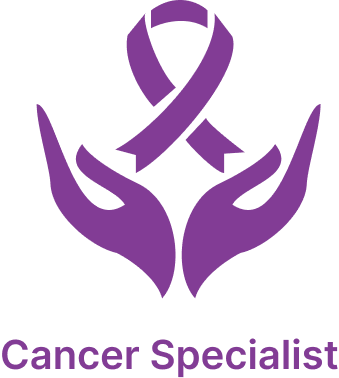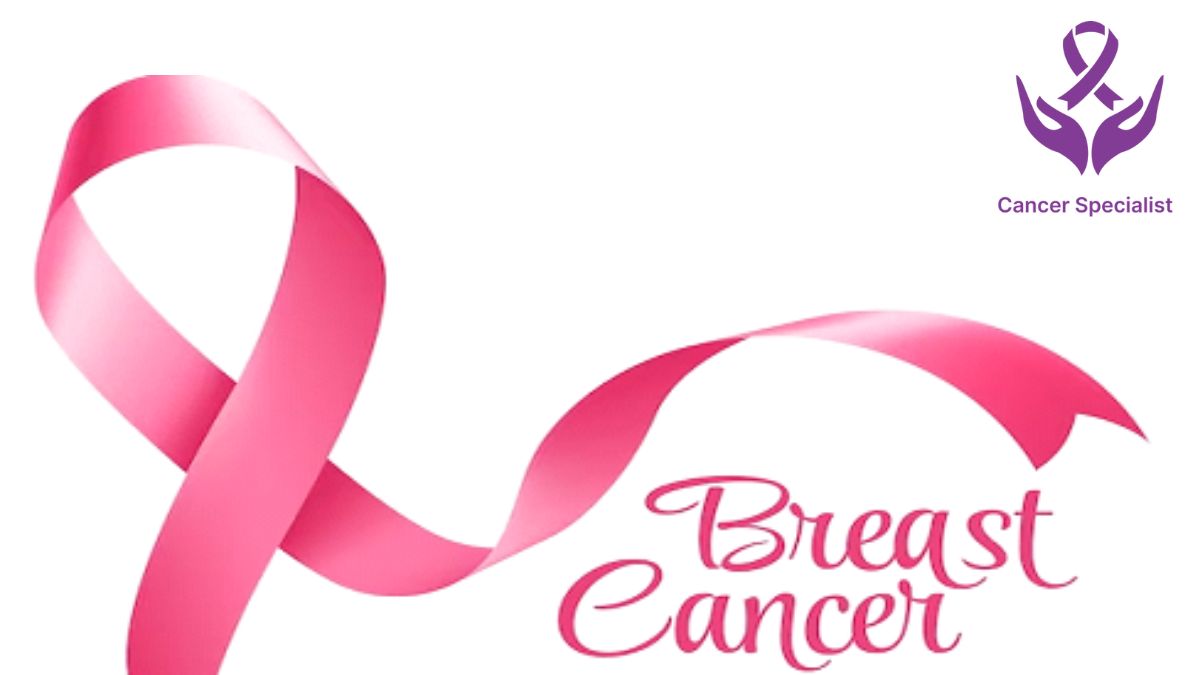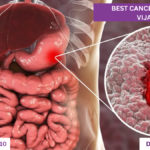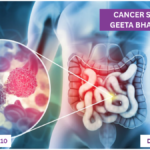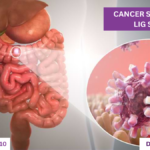Breast cancer is one of the most common cancers found in women across the world. Knowing its types helps in early detection and planning the right treatment for better results.
Dr. Suyash Agrawal, a cancer doctor Indore, explains the different types of breast cancer, their signs, and the treatments available so that you feel informed and confident.
👨⚕️ Dr. Suyash Agrawal is a cancer specialist in Indore. He is experienced in surgical oncology and performs breast and gynecological cancer surgeries along with chemotherapy planning.
Table of Contents
Toggle1. What is Invasive Ductal Carcinoma and Why is it Most Common?
Almost 80% of breast cancer cases are Invasive Ductal Carcinoma (IDC). It starts in the milk ducts and spreads to nearby breast tissue. If not treated on time, it can reach the lymph nodes or other body parts.
Main signs of IDC:
- A hard or firm lump in the breast
- Skin dimpling or puckering
- Nipple turning inward or unusual discharge
Cancer Doctor Indore says that treatment for IDC depends on hormone receptor and HER2 status. It usually includes surgery, chemotherapy, radiation therapy, and targeted therapy.
2. Is Ductal Carcinoma in Situ (DCIS) Truly an Early-Stage Cancer?
Yes. DCIS is a non-invasive cancer where abnormal cells stay inside the milk ducts and do not spread to nearby tissues. It is usually found during routine mammograms before any symptoms appear.
Cancer Surgeon explains that even though DCIS is not invasive, it still needs treatment to prevent it from turning into invasive cancer.
3. Should You Be Concerned About Lobular Carcinoma in Situ (LCIS)?
LCIS is not cancer but a marker indicating a higher risk of developing invasive breast cancer later in life. It arises in the milk-producing lobules.
Cancer Doctor Indore advises:
- Annual mammograms
- Clinical breast exams
- Risk-reducing medications (e.g. Tamoxifen) in high-risk women
- Preventive mastectomy in selected cases
4. What is Invasive Lobular Carcinoma and How is it Detected?: Dr Suyash Agrawal, Cancer Doctor Indore
Invasive Lobular Carcinoma (ILC) is the second most common type of breast cancer. It begins in the milk-producing lobules and spreads to nearby tissues. Unlike IDC, ILC usually does not form a clear lump. Instead, it causes thickening or a feeling of fullness in the breast, which makes it harder to detect through physical exams or mammograms.
According to Dr. Suyash Agrawal, treatment for ILC includes surgery, hormone therapy, chemotherapy, and radiation. ILC can also affect both breasts, so detailed imaging tests are needed before starting treatment.
5. Why is Triple-Negative Breast Cancer Considered More Aggressive?
Triple-Negative Breast Cancer (TNBC) lacks estrogen, progesterone, and HER2 receptors, making it unresponsive to hormone or HER2-targeted therapy. It accounts for about 10-15% of breast cancers.
Characteristics:
- More common in younger women
- Grows and spreads faster
- Higher risk of recurrence within first 3 years
Cancer Doctor Indore states chemotherapy is the main treatment option for TNBC, often combined with surgery and radiation therapy.
6. How Does Targeted Therapy Work in HER2-Positive Breast Cancer?
HER2-positive breast cancer has too much of the HER2 protein, which makes cancer cells grow faster. Although it is an aggressive type of cancer, it can be treated effectively with targeted therapy.
Cancer Surgeon recommend HER2-targeted medicines like trastuzumab (Herceptin) and pertuzumab. These medicines block the HER2 protein and stop the cancer from growing. When combined with surgery, chemotherapy, and radiation, this treatment approach greatly improves survival rates.
7. What Makes Inflammatory Breast Cancer the Rarest and Most Dangerous Type?
Inflammatory Breast Cancer (IBC) is rare (1-5% of cases) but extremely aggressive. It blocks lymph vessels in the breast skin, causing:
- Redness, swelling, and warmth
- Peau d’orange (orange peel) skin texture
- Rapid progression to advanced stages
Cancer Surgeon explains IBC is usually diagnosed at Stage III or IV and requires neoadjuvant chemotherapy, surgery, and radiation therapy for effective control.
Types of Breast Cancer: Quick Comparison Table
| Type | Description | Treatment |
| IDC | Most common invasive cancer starting in ducts | Surgery + Chemo + Radiotherapy |
| DCIS | Non-invasive early cancer limited to ducts | Surgery + Radiotherapy |
| LCIS | Not cancer but raises future risk | Surveillance + Risk reduction |
| ILC | Invasive cancer starting in lobules | Surgery + Hormone + Chemo |
| TNBC | Lacks ER, PR, HER2 receptors | Chemotherapy |
| HER2+ | High HER2 protein expression | Targeted therapy + Surgery |
| IBC | Rare, fast-spreading with skin changes | Chemo + Surgery + Radiotherapy |
Treatment Expertise: Dr Suyash Agrawal – Cancer Doctor Indore
👨⚕️ Dr Suyash Agrawal is an experienced Cancer Doctor Indore specialising in:
- Breast Cancer Surgery (Conservative & Radical)
- Sentinel Lymph Node Biopsy
- Oncoplastic Reconstruction for cosmetic restoration
- Comprehensive Chemotherapy Planning
- Multidisciplinary cancer care with patient-centred counselling
Patients trust his approach for precise treatment with minimal complications and faster recovery.
Reviews for Dr Suyash Agrawal – Cancer Surgeon
⭐ Neha J.
“I had IDC Stage II breast cancer. Dr Suyash explained every detail patiently and performed breast-conserving surgery. I am now healthy and confident.”
⭐ Pooja M.
“My mother had HER2-positive breast cancer. Dr Suyash Agrawal gave targeted therapy and surgery. She recovered smoothly. Highly recommended.”
⭐ Ritu K.
“I had a painful lump and was scared. Dr Suyash diagnosed it as ILC and operated with utmost care. Thank you, for giving me a new life.”
FAQs: Frequently Asked Questions About Types of Breast Cancer
Q1. Which is the most common type of breast cancer?
Invasive Ductal Carcinoma (IDC) is the most common, accounting for nearly 80% of all cases.
Q2. Can LCIS turn into cancer?
LCIS itself is not cancer but increases the risk of developing invasive breast cancer in either breast in the future.
Q3. Is Triple-Negative Breast Cancer curable?
Yes, if detected early and treated promptly with chemotherapy and surgery, but it has a higher chance of recurrence than other types.
Q4. How is HER2-positive breast cancer treated?
It is treated using HER2-targeted therapy (Trastuzumab, Pertuzumab), chemotherapy, surgery, and radiation therapy for comprehensive control.
Q5. What are early signs of breast cancer I should not ignore?
- New lump in the breast or armpit
- Changes in breast shape or size
- Skin dimpling or redness
- Nipple inversion or bloody discharge
Q6. Who is the best cancer doctor in Indore for breast cancer?
👨⚕️ Dr Suyash Agrawal, a specialist in surgical oncology with expertise in breast cancer surgeries and chemotherapy planning.
Final Words: Early Diagnosis Saves Lives
Breast cancer is not a single disease; each type requires specific treatment. If you notice any breast changes or lumps, do not delay. Consult a Cancer Surgeon immediately for the right guidance and care.
✅ Book your appointment today with Dr Suyash Agrawal – Cancer Surgeon
👉 For expert consultation, screening, or second opinion, visit Cancer Specialist Indore.
